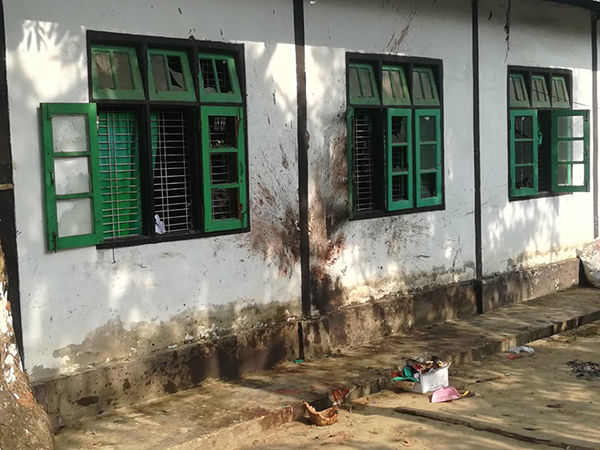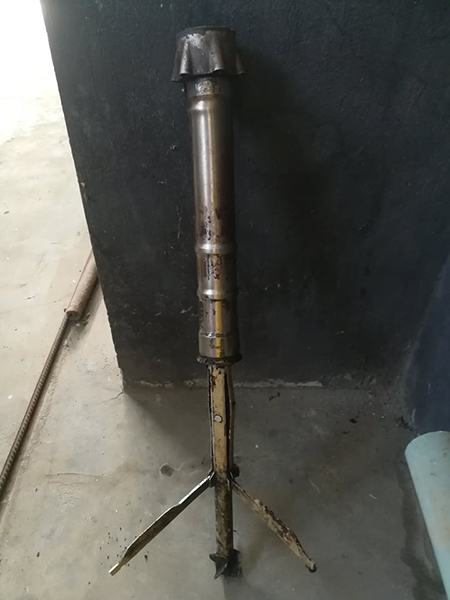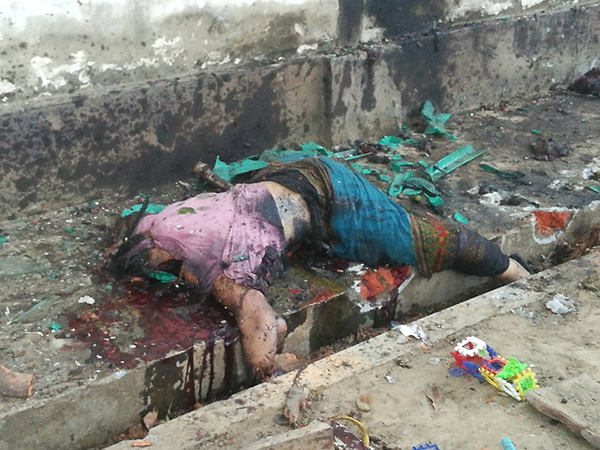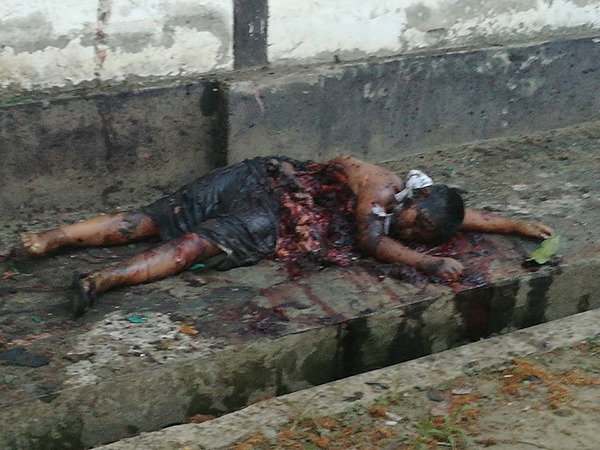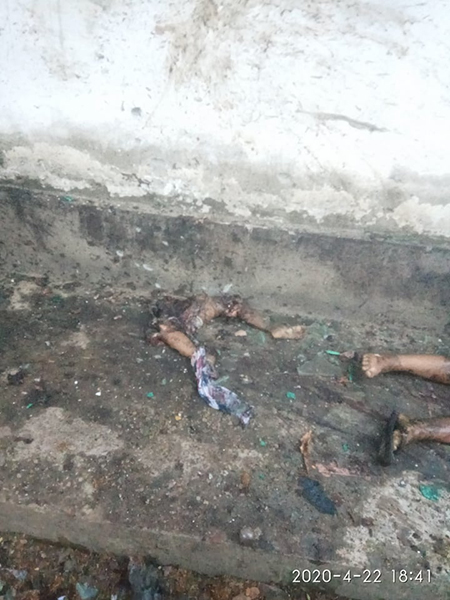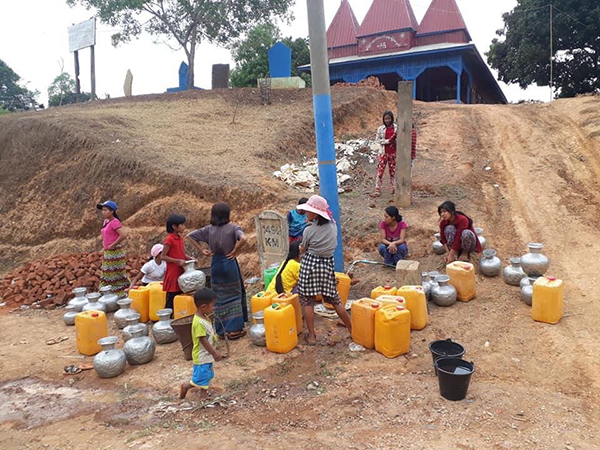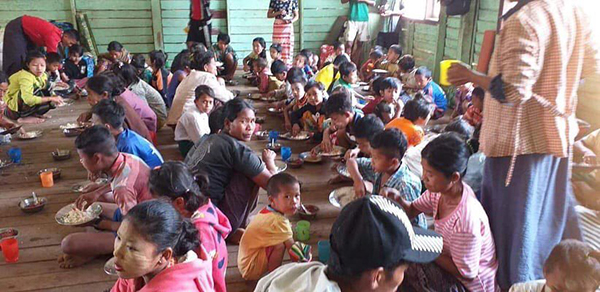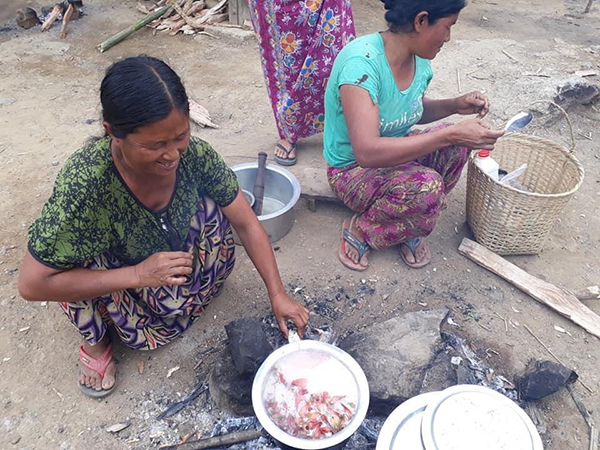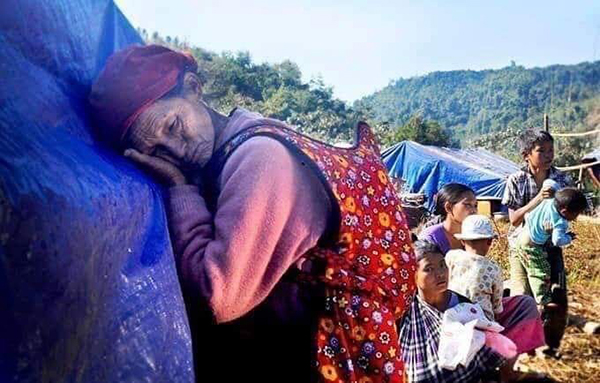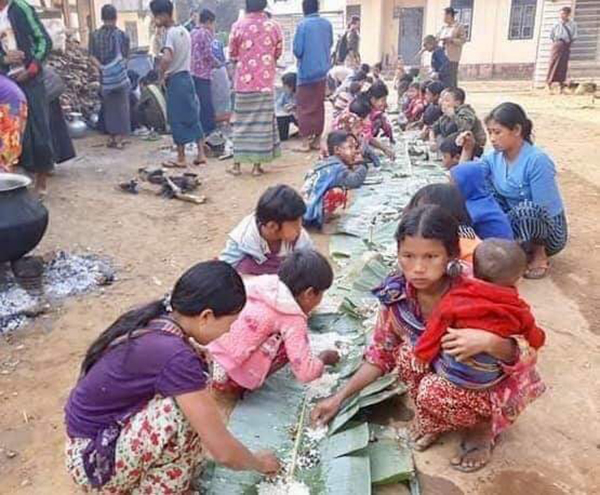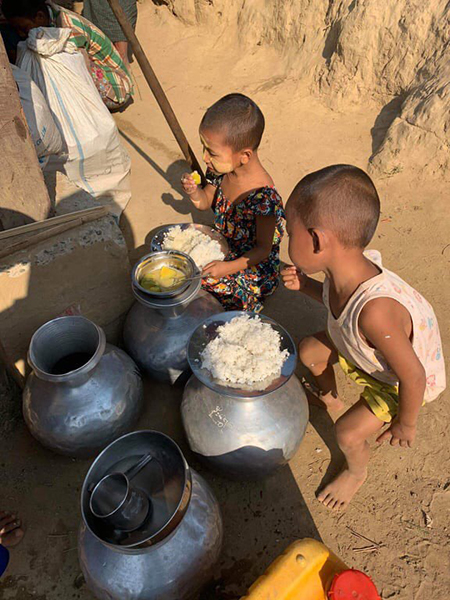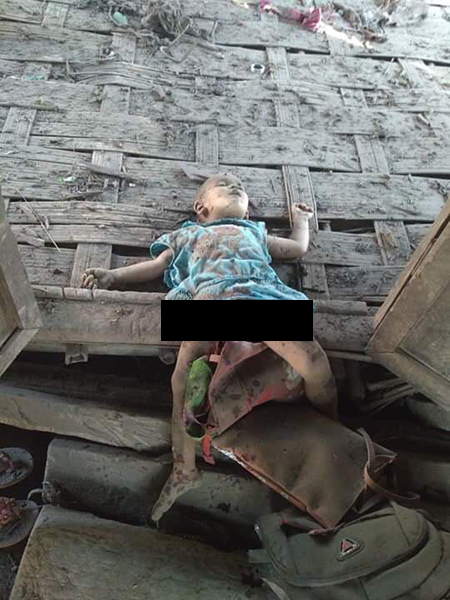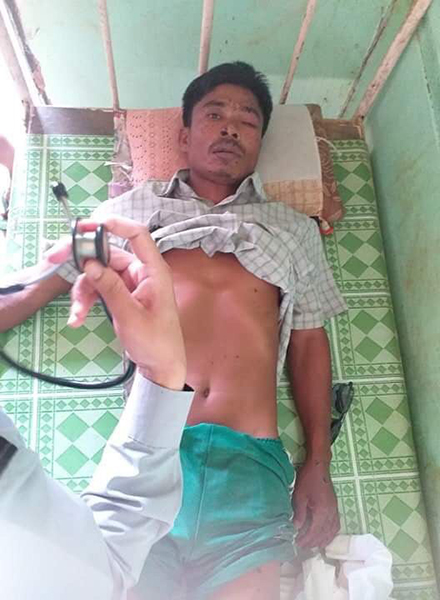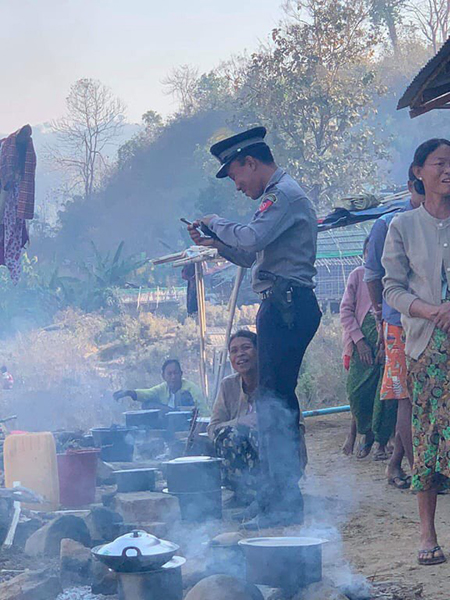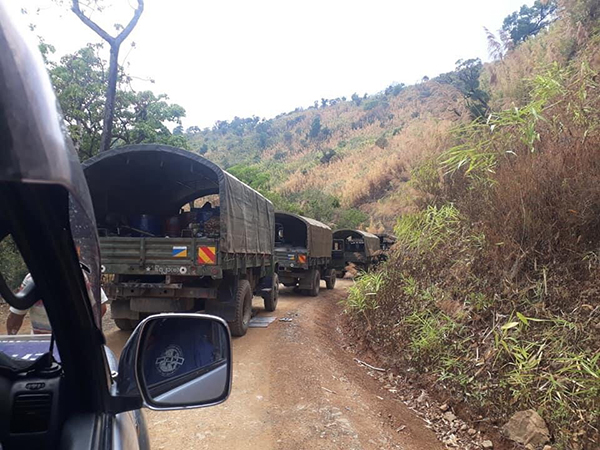Burma Army Attacks, Kidnaps, and Tortures Villagers in Western Burma
16 July 2020
Arakan State, Burma
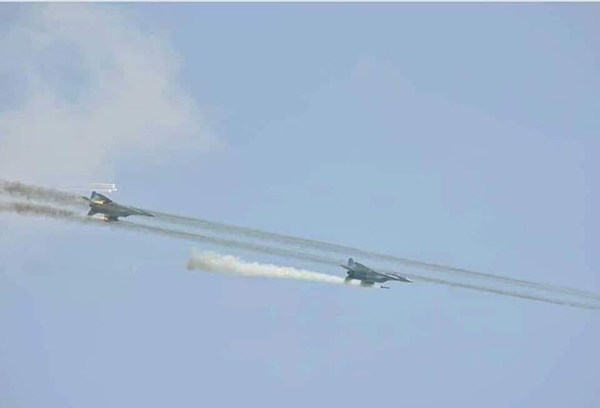
**WARNING: This report contains graphic photos of victims of a Burma Army airstrike**
Photos provided by local villagers.
The Burma Army’s attacks continue in western Burma and civilians living there, regardless of religion, continue to suffer in the indiscriminate violence of the Burma Army’s attempts to defeat the Arakan Army (the local Ethnic Armed Organization, or EAO). In recent months, more than 10,000 Chin (who are mostly Christian), Arakan (who are primarily Buddhist, and Khumi (mostly Christian) villagers, have been displaced in Chin State as fighting between the Burma Army and Arakan Army has spilled across the border from Arakan to Chin state. Additionally, 70,000 mostly Buddhist Arakan villagers have been displaced in the last year and over one million Rohingya villagers (who are primarily Muslim) remain displaced from their homes and living in refugee camps in Bangladesh. As will be seen from interviews below, the Burma Army continues a longstanding practice of using violence against civilians in its efforts to defeat the Ethnic Armed Organizations, who are trying to defend their people.
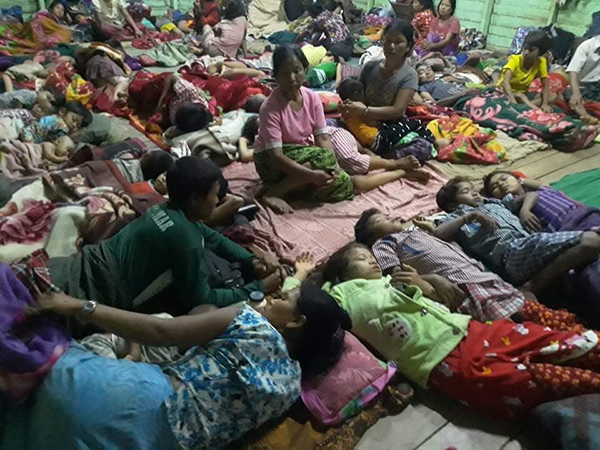
Villagers Kidnapped and Tortured
Normal, day-to-day activities carry high risk for civilians as the Burma Army can at will detain them for questioning and, with impunity, arrest, torture or kill them for suspected affiliation with the Arakan Army.
U Nga Mae, a 75-year-old from Kyauk Tan Village, Rathedaung Township, shared how, on March 12, the Burma Army took him while he was herding buffalo, asking him if he was a member of the Arakan Army. He said he was not part of the group, but still the soldiers beat him twice. Again, the soldiers asked if he was associated with the Arakan Army. Again, U Nga Mae said no.
After his second reply, the Burma Army soldiers took him and kept him for two days. While he was held, the soldiers interrogated him and then tortured him when they didn’t get the information they were looking for from U Nga Mae.
“I felt so bad- the feeling like that of the nose bone breaking,” said U Nga Mae of the torture.
“After that, [the soldiers] took me to Htee Swae Village and when we reached there, they asked me ‘Where is the Arakan Army?’ I answered them that the Arakan Army is in all villages.”
The soldiers would continue to torture U Nga Mae at night, again and again. The soldiers were from Battalion 551 and U Nga Mae estimated there were about 120 soldiers encamped at Htee Swae Village.
“I got four injuries in my head when they beat [me] up by using the knife,” he said.
In total, U Nga Mae was kept in their custody for four days before he was able to run away while his guards were sleeping.
60-year-old Mg Kyaw Tun, from Amyat Daung Village, reports similar questionings by the Burma Army who now live in his village.
“The Burma Army often take us to ask about the Arakan Army, questions like ‘Where is the Arakan Army?’” he said. “They burn the village when they don’t get the information they want. So, we run away fearfully to avoid them… The cows, buffalos, and grains were left in the village [but] the grains and houses are burned now.”
Aye Mi Win, a 45-year-old woman from Lahkoate Village, said, “I want to request the Arakan Army and Burma Army to avoid ongoing war near the village. The government military, which we count on to protect our lives safely and peacefully, are violent and torture people cruelly. How can we count on them? They treat us like the enemy.”
Htay Hlaing, 30 years old from Far Pro Village, encountered the Burma Army during a lunch break. One day, Htay Hlaing, who works with an electrical tower company, returned to his village to eat lunch. There he met 20 Burma Army troops who told him they would kill him because the soldiers thought he was a part of the Arakan Army. Even though he wasn’t Arakan Army, and said so to the soldiers, the soldiers badly beat him.
“I lost a lot of blood because of the injuries and being tortured by them,” Htay Hlaing said. “They left me when they thought I was dead.”
Htay Hlaing hid in a nearby house where the soldiers couldn’t easily find him. The soldiers remained for the day, killing and eating local chickens and pigs. The next morning Htay Hlaing came out of hiding and, even though the soldiers saw him, escaped.
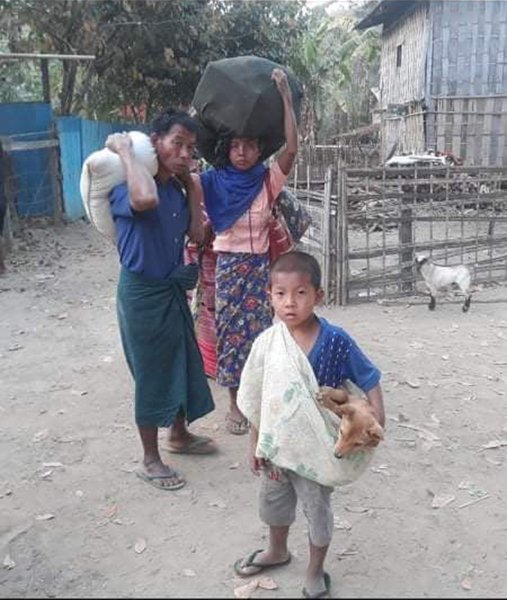
Burning Villages and Those Who Couldn’t Escape
While some villagers, like U Nga Mae and Htay Hlaing, are able to escape the Burma Army, many others are not. Their stories are told by the survivors.
Ma Aye Nyunt, 66 years old from Far Pro Village, Minbya Township, recounts how she saw the Burma Army come and burn her village. She was sitting in her house on May 29 when the soldiers arrived. She ran away but watched as the soldiers first burned her house and then the houses of two of her friends.
“I saw they were burning the village with my own eyes. They burned one home after another. One grandmother died in the fires because she couldn’t walk. I think another person, Aung Tan Thar (51), was put into the fire by Burma Army troops after the troops killed him,” she recalled.
65-year-old Daw Nu San was also in Far Pro Village that day.
“About 40 Burma Army troops burnt my home first. I couldn’t say anything because I was afraid they would beat me if I requested them not to [burn down my house]. After they burned my home, they prepared to burn U Aung Thein Tan’s home. [At the same time], about 10 Burma Army troops targeted U Aung Thein Tun with their guns. They allowed U Aung Thein Tan to leave when many houses were burning. I also ran away.”
Daw Nu San saw U Aung Thein Tun’s mother-in-law and tried to lift her but couldn’t which meant she had to leave her behind, alone in the fire.
“Moreover, [the Burma Army soldiers] cruelly killed one villager called U Aung Tun Thar [through] head injuries before putting him into the fire,” added Daw Nu San.
Porter by Force
Along with the conflict and danger of detainment by Burma Army soldiers, villagers also risk being taken and forced to serve as porters. Mg Khin Win, from Lat Khout Village, is one villager who was taken along with 12 others by the Burma Army and forced to porter while also being tortured and refused food and water. Eventually the villagers were let go.
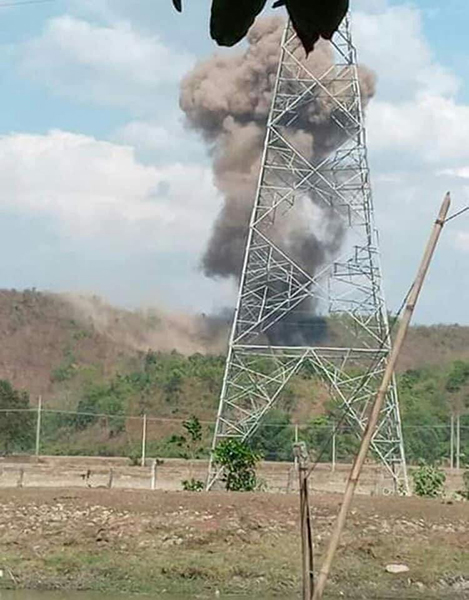
Landmine and Airstrikes
At 11 a.m. on May 24, Manug Htin Aung, a 40-year-old farmhand from Kan Thati Village, Ponnag Yun Township, stepped on a landmine while he was cutting bamboo in the hills west of his village.
On April 22, the Burma Army fired heavy weapons into Paletwa City, killing one lady, her daughter, and a boy. Ei Thanda, a 25-year-old Chin woman, was killed in the attack along with her daughter, 4-year-old Moe Moe Aung, and an 8-year-old Rakhine boy named Aung Naing. The area was shut down soon after the attacks, preventing help and assistance from reaching the area.
Conclusion
As the Burma Army continues to engage in violence without being held accountable to international laws, civilians within Burma continue to be killed or injured without hope of seeing justice done on their behalf.
